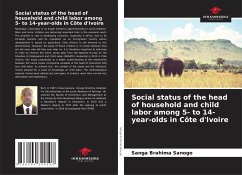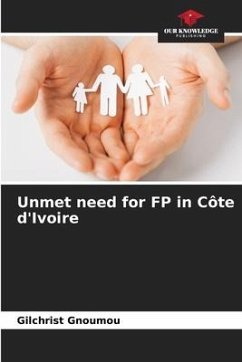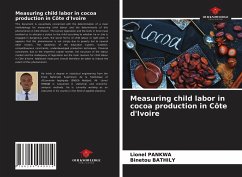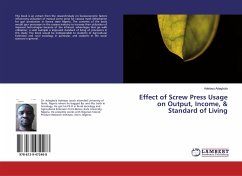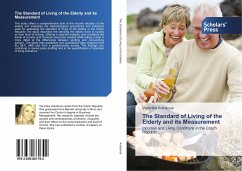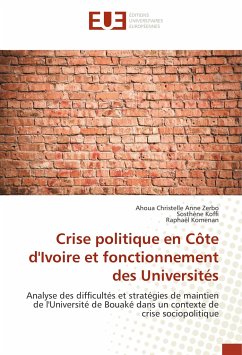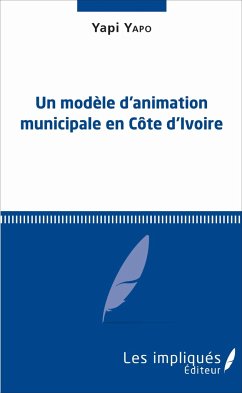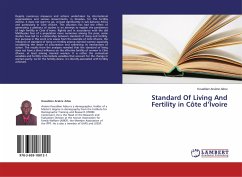
Standard Of Living And Fertility in Côte d'Ivoire
Versandkostenfrei!
Versandfertig in 6-10 Tagen
27,99 €
inkl. MwSt.

PAYBACK Punkte
14 °P sammeln!
Despite numerous measures and actions undertaken by international organizations and various Governments, in decades, for the fertility decline, it does not seem to go, at least significantly in sub-Saharan Africa and particularly in Côte d'Ivoire. This situation has had the effect of generating a plethora of studies in an attempt to explain the persistence of high fertility in Côte d'Ivoire. Rightly and in accordance with the old Malthusian fear of a population more numerous among the poor, some studies have led to a relationship between standard of living and fertility. Our purpose in this ...
Despite numerous measures and actions undertaken by international organizations and various Governments, in decades, for the fertility decline, it does not seem to go, at least significantly in sub-Saharan Africa and particularly in Côte d'Ivoire. This situation has had the effect of generating a plethora of studies in an attempt to explain the persistence of high fertility in Côte d'Ivoire. Rightly and in accordance with the old Malthusian fear of a population more numerous among the poor, some studies have led to a relationship between standard of living and fertility. Our purpose in this work is to assess from the example of Côte d'Ivoire, the influence of standard of living on fertility among married women especially considering the desire of procreation and examining its mechanisms of action. The results from the analyses revealed that the standard of living does not have a direct influence on the effective fertility of women in Côte d'Ivoire, at least among married women. It is rather the contextual variables and fertility intermediate variables that account for the change in women parity. As for the fertility desire, it is directly associated with fertility achieved.



